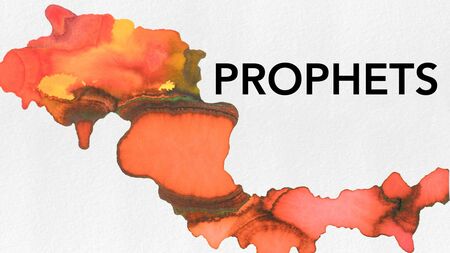.png)
The prophet Habakkuk invites us into a profoundly honest conversation with God that feels strikingly contemporary. We encounter a faithful servant wrestling with the violence, injustice, and corruption he sees among God's own people, crying out in lament: 'How long, O Lord, must I call for help?' This ancient prayer resonates deeply with our modern experience as we witness oppression, political violence, and moral decay in our world and even within our faith communities. What makes Habakkuk's message so powerful is that lament itself becomes an act of faith. When we cry out 'when, God?' rather than 'if, God?' we demonstrate trust that God will act, even when the timing remains mysterious. God's unexpected answer—that He will use an even more violent nation, Babylon, to bring judgment—challenges our assumptions about how divine justice works. Yet Habakkuk chooses to wait on his watchtower, trusting that God's vision will ultimately prevail. The central message emerges clearly: the righteous will live by faith. This means trusting God's promises even when circumstances seem contradictory, acting as if God's kingdom is already breaking into our reality, loving our neighbors amid disagreement, forgiving wrongs, releasing anxiety about the future, and giving daily thanks. Living by faith is not passive waiting but active trust that shapes how we engage with an unjust world while anticipating God's ultimate restoration.
How does Habakkuk's lament challenge our understanding of what it means to have faith, especially when we feel God is silent or inactive in the face of injustice?
In what ways might God's answer to our prayers be different from what we expect, and how can we cultivate the patience to wait and see what God is doing?
What is the difference between lamenting to God and doubting God, and why is lament an important expression of faith rather than a sign of weakness?
When we look at injustice in our own communities or churches rather than just pointing to external enemies, what does that reveal about our willingness to be honest before God?
How can we discern whether we are fighting for truth out of love or simply because we want to win arguments and prove ourselves right?
What does it practically look like to live by faith in a world that is clearly not as it should be, while waiting for God's promised kingdom to come?
How does the story of God using Babylon, an even more evil nation, to judge Israel challenge our assumptions about how God works in history and current events?
In what areas of your life are you tempted to trust in yourself rather than living by faithfulness to God, and what would it look like to shift that trust?
How can we practice loving our neighbors, even those we disagree with strongly, while still standing for truth and justice as God defines them?
What would change in your daily life if you truly believed and acted as if God will fulfill all His promises and bring His kingdom to completion?


.png)